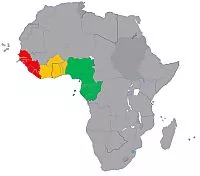Nigeria's parliament has approved a ₦7.4 trillion budget (about US$24 billion) for 2017, five months after President Muhammadu Buhari first presented the budget in December 2016. Given the tense political climate and the state of the economy, the approval has brought some relief and raised optimism about the government's aim to pursue economic recovery.
Main Findings
- The 2017 budget is 20% bigger than the 2016 budget with a fiscal deficit of US$7.5 billion (about 2% of GDP). US$7 billion has been appropriated for capital spending, chiefly on housing, transport and power infrastructure. Key projects include construction of the Lagos-Calabar railway and Lagos-Kano railway, upgrade of the Lagos and Abuja airports, and the launch of a nationwide housing program to cost US$3 billion in the long run. Oil revenue assumptions are based on an output of 2.2. million barrels per day (mbpd) and the exchange rate is put at ₦305/US$.
- The delay in the passage of the 2017 budget is typical of Nigeria's appropriation system. The last three budgets have been passed around the middle of the financial year, which runs from 1 January to 31 December, and this is partly because the constitution does not stipulate a specific timeline for the appropriation process, and also due to disputes between the presidency and legislators affecting cooperation. A senior aide to one Nigerian senator told Songhai Advisory, "The delay begins with the executive. When the president presents a budget request in December—the last month of the fiscal year, you don't expect parliament to rush through the appropriation in a month or two. It has to be a thorough process considering how many ministries, departments and agencies the budget caters for."
- For the 2016 budget, proposed infrastructure projects and social security programs were put on hold due to revenue shortfalls. A jobs program did not take off until late 2016 and runway repairs at the Abuja airport were only executed in March 2017 for instance. There are similar concerns about revenue projections for the 2017 budget. Seun Onigbinde, CEO of public finance firm BudgIT, said, "I think our revenue assumptions are wide off the mark. Mostly the recurrent component will get spent because you'll service debts and pay salaries, but if your revenue performance doesn't reach your mark, capital projects will be affected. Let's hope the executive will have the resources to implement its capital budget this time."
Outlook
The newly passed budget bill will be sent to the president for assent and there are hopes that it will be signed into law before the third quarter to mobilize funds for infrastructure spending and encourage investors. President Buhari is presently in the UK on indefinite sick leave, but Vice President Yemi Osinbajo is empowered by the constitution to stand in for him in this process should his sick leave linger.
Nevertheless, further delay would not be unusual: in 2010 for instance, then-Acting President Goodluck Jonathan withheld assent for three weeks due to a dispute with parliament over allocations. Implementation, on the other hand, will be subject to revenue inflow and political will, particularly in the midst of such uncertainty surrounding Buhari's ill health and in the build up to the 2019 polls.
The content of this article is intended to provide a general guide to the subject matter. Specialist advice should be sought about your specific circumstances.

